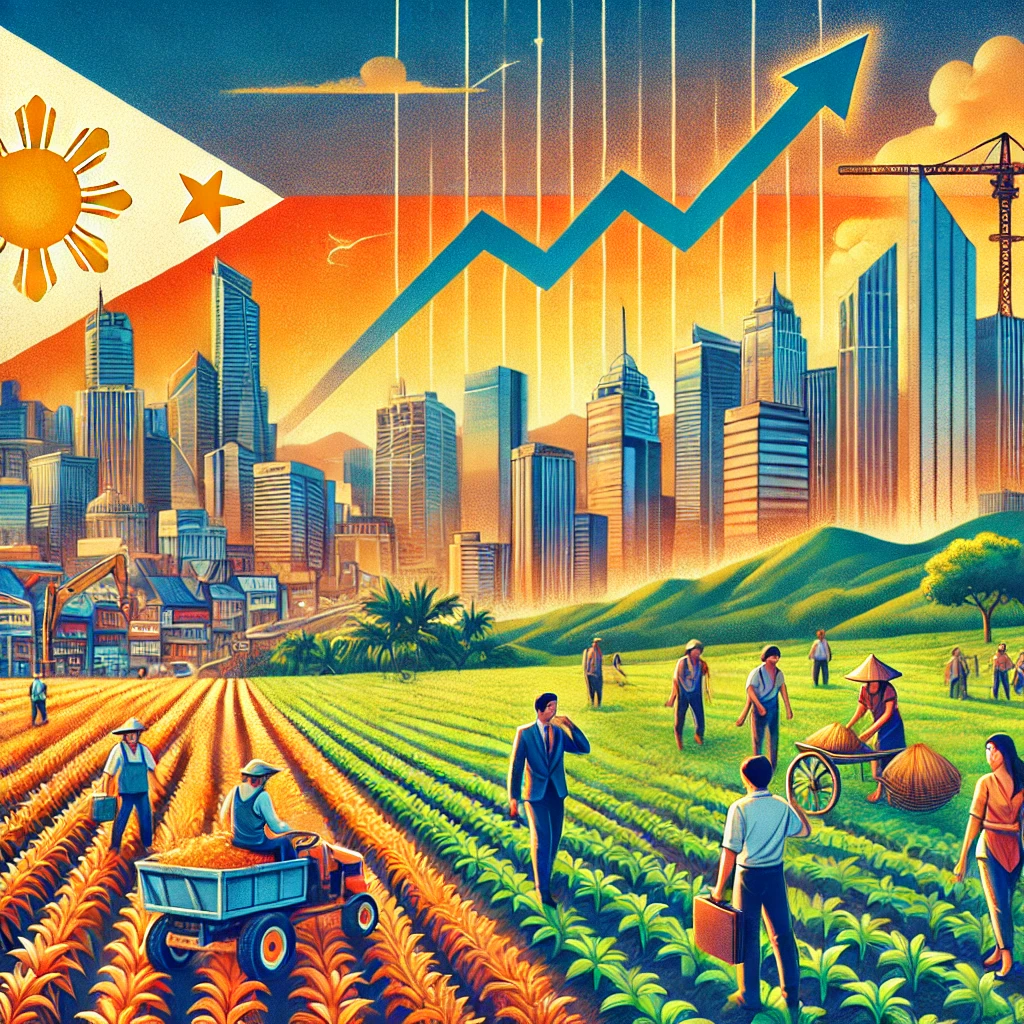The Philippines has long been recognized for its dynamic and resilient economy. However, as the global economy becomes more tech-driven, the integration of artificial intelligence (AI) offers an unprecedented opportunity to unlock further economic potential. By harnessing the power of AI, the Philippines could accelerate its GDP growth, improve productivity, and enhance the overall competitiveness of its key industries.
The AI Revolution and Its Economic Impact
AI is transforming industries worldwide by automating repetitive tasks, improving decision-making processes, and creating more efficient systems. In developed nations, the integration of AI has already shown promising results, boosting GDP through enhanced productivity and innovation. For the Philippines, which boasts a rapidly growing tech sector, AI presents a tremendous opportunity to not only keep pace with global trends but also lead in specific sectors like business process outsourcing (BPO), agriculture, healthcare, and transportation.
According to a report by PwC, AI is projected to contribute up to $15.7 trillion to the global economy by 2030[^1^]. With a strategic focus on AI adoption, the Philippines could secure a significant share of this growth, potentially boosting its GDP by 12% to 14% over the next decade.
Key Areas Where AI Can Boost the Philippine Economy
- Business Process Outsourcing (BPO)
The BPO industry has been one of the pillars of the Philippine economy, contributing nearly $30 billion annually. By integrating AI tools such as chatbots, automated customer service, and data analytics, the sector could enhance its value proposition to international clients. AI can also optimize internal processes, reducing costs while improving service quality. This allows for a shift from traditional call center roles to more specialized AI-supported jobs, thus fostering higher-skilled employment. - Agriculture
Agriculture remains a critical component of the Philippine economy, employing about 25% of the workforce. However, productivity in this sector lags behind global standards. AI-powered technologies like precision farming, drones, and predictive analytics could revolutionize the agricultural landscape, helping farmers optimize crop yields, reduce resource use, and anticipate market fluctuations. This shift could lead to significant economic growth in rural areas, reduce poverty, and stabilize food prices. - Healthcare
With the Philippines facing a shortage of healthcare professionals, AI can alleviate some of the strain on the system. AI-driven diagnostics tools, telemedicine, and robot-assisted surgery could expand healthcare access, especially in remote and underserved areas. Furthermore, AI systems could be used to analyze large datasets to predict disease outbreaks and improve healthcare planning, potentially saving the government billions in healthcare costs. - Transportation and Urban Planning
Traffic congestion is a persistent issue in the Philippines, particularly in urban centers like Metro Manila. AI can play a crucial role in smart city development by optimizing traffic flow through real-time data analytics and machine learning algorithms. AI-driven transportation solutions like autonomous vehicles, ride-sharing platforms, and AI-powered traffic management systems could significantly reduce the economic losses caused by congestion, estimated to be ₱3.5 billion daily according to the Japan International Cooperation Agency (JICA) .
AI and Job Creation: Friend or Foe?
One of the concerns surrounding AI adoption is the potential for job displacement. However, in the case of the Philippines, AI could serve as a catalyst for job creation, rather than job loss. As more industries adopt AI, there will be a growing demand for AI specialists, data scientists, and other tech-driven roles. Upskilling initiatives can help workers transition into these new roles, ensuring that the workforce remains competitive in the evolving global market.
Moreover, AI has the potential to create entirely new industries. For instance, AI-driven startups could emerge, developing innovative solutions for local and global markets. This would open the door to foreign investments and create more opportunities for Filipino entrepreneurs.
The Road Ahead: Policy and Investment
To fully embrace AI and unlock its economic potential, the Philippine government needs to adopt a comprehensive AI strategy. This involves fostering a digital-first policy, investing in research and development (R&D), and supporting AI education and training programs. Collaboration between the public and private sectors is crucial to ensure the smooth implementation of AI technologies while addressing potential ethical concerns such as data privacy and job displacement.
Countries like Singapore and China have already laid out clear AI roadmaps that are driving their economies forward. The Philippines can learn from these models and craft its own AI agenda that prioritizes sustainable economic growth and technological leadership in the region.
Conclusion
The integration of AI into key industries can serve as a powerful driver of economic growth for the Philippines. By embracing AI, the country can position itself at the forefront of the digital revolution, enhancing productivity, creating high-value jobs, and boosting its GDP to new heights. As the Philippines stands on the cusp of this transformation, it is imperative for policymakers, businesses, and the workforce to unite in harnessing the full potential of AI.
The future is bright for the Philippines, but the key to unlocking this potential lies in embracing innovation today.
I, Evert-Jan Wagenaar, resident of the Philippines, have a warm heart for the country. The same applies to Artificial Intelligence (AI). I have extensive knowledge and the necessary skills to make the combination a great success. I offer myself as an external advisor to the government of the Philippines. Please contact me using the Contact form or email me directly at evert.wagenaar@gmail.com!
[^1^]: PwC AI Economic Impact Report
[SEO optimized]
